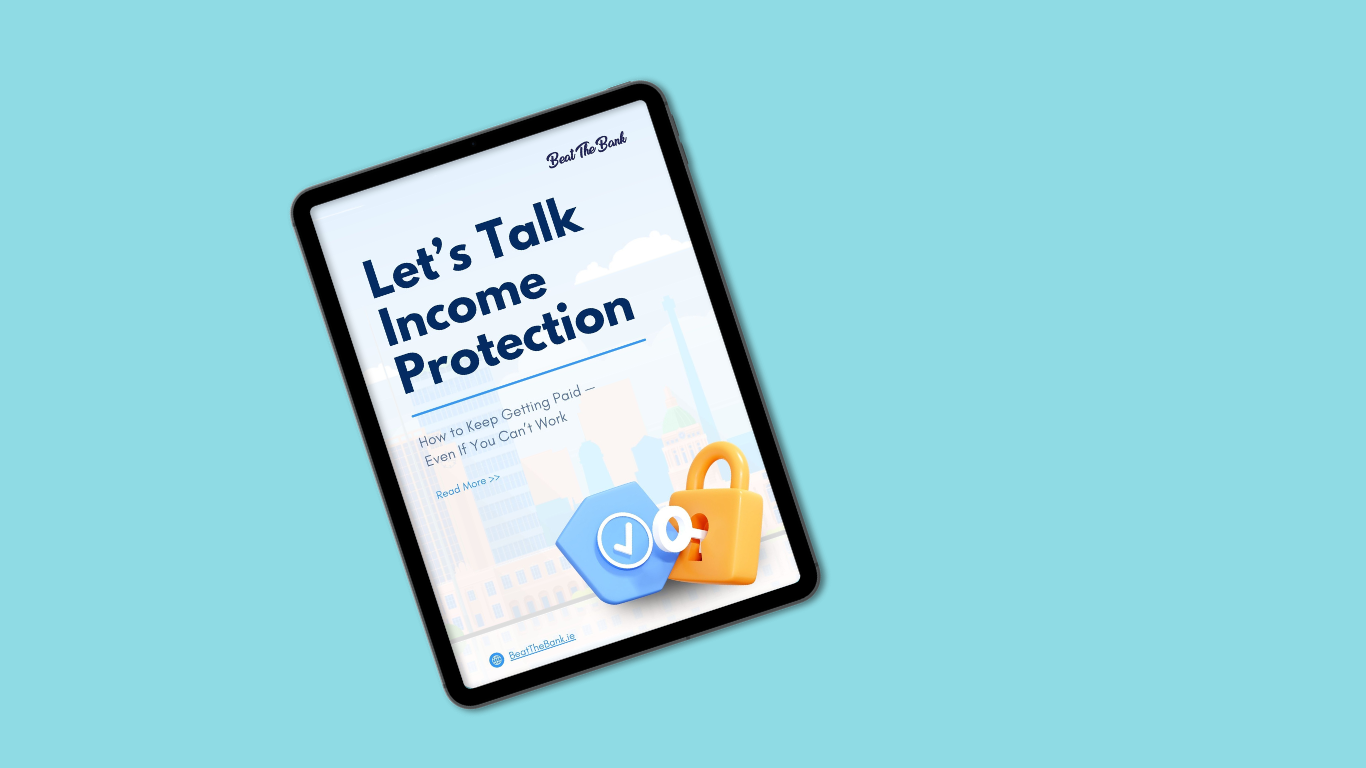What Is Income Protection?

Niall O'Connor MSc CFP® QFA
Co-Founder

What Is Income Protection?
Income protection is an insurance policy that replaces a portion of your income if you cannot work due to illness or injury.
It is designed to provide a regular monthly payment so you can continue to cover essential bills while you recover.
How Income Protection Works
Income protection provides a monthly benefit if you are medically certified as unable to work. Here’s the basic process:
1. You choose the level of cover (usually up to 75% of your income).
2. You select a deferred period (the waiting period before payments begin).
3. You pay a monthly premium.
4. If you are unable to work due to illness or injury, the policy pays out until you recover or reach the end of your benefit period.
It’s designed to replace part of your income , not all of it, but enough to keep your financial life on track.
What Does Income Protection Cover?
Income protection covers any illness or injury that keeps you from performing your job – not just a specified list. For example it generally covers:
• Illnesses that prevent you from working
• Injuries that stop you performing your job
• Long-term or serious medical conditions
• Mental health conditions
• Recurring or chronic conditions
• Partial claims in some cases (if you return to work part-time)
What Does Income Protection Not Cover?
Most income protection policies do not cover:
• Redundancy or unemployment
• Self-inflicted injuries
• Normal pregnancy or maternity leave
• Short-term absences within your chosen deferred period
How Much Income Can You Protect?
Most insurers allow you to cover up to 75% of your pre-tax earnings, minus state illness benefit if applicable, to a maximum salary of €350,000.
For example:
If you earn €3,600 per month:
• 75% = €2,700
• Less state illness benefit (if applicable)
• Your policy might cover around €2,200–€2,500 per month
This ensures your essential expenses are protected.
How Long Does It Pay Out?
The policy will pay out until recovery, return to work or your chosen retirement age. The retirement age is chosen at the outset of the policy.
What Is a Deferred Period?
The deferred period is the time between the day you stop working and the day payments begin.
Common deferred periods:
• 4 weeks
• 8 weeks
• 13 weeks
• 26 weeks
• 52 weeks
A longer deferred period usually means a lower premium.
Example:
If your employer provides 3 months’ sick pay, a 13-week deferred period often makes financial sense.
Who Should Consider Income Protection?
Income protection may be especially useful if you:
• Rely on your salary to pay monthly bills
• Are self-employed
• Have a mortgage or rent to cover
• Have dependants
• Don’t receive employer sick pay
• Want long-term financial security
• Have savings that wouldn’t last long
• Would struggle financially if your income stopped
If being out of work for months would impact you financially, income protection can provide essential stability.
Example Scenarios
Example 1: Self-employed worker
A self-employed graphic designer breaks her arm and cannot work for 10 weeks.
Her policy has an 8-week deferred period.
Outcome: She receives 2 weeks of income protection payments until she returns to work.
Example 2: Employee with limited sick pay
A full-time employee receives 6 weeks’ sick pay from their employer.
They choose an 8-week deferred period.
If they develop a long-term illness, the policy begins paying from week 9.
Example 3: Long-term illness
A teacher is diagnosed with a condition that prevents them from working for 2.5 years.
Their policy pays out monthly until they return to work — because it includes long-term cover.
Income Protection vs. Serious Illness Cover
| Feature | Income Protection | Serious Illness Cover |
|---|---|---|
| Type of payout | Monthly income | One-off lump sum |
| Trigger | Unable to work due to illness/injury | Diagnosis of a listed condition |
| Duration | Until recovery or end of claim period | One payment only |
| Best for | Replacing income | Covering extra costs or debts |
These products are complementary — not interchangeable.
Income protection provides financial stability when illness or injury stops you from working. It replaces a portion of your income so that essential bills continue to be paid while you focus on recovery. With flexible benefit periods, deferred periods, and coverage options, it can be tailored to suit different needs and budgets.
Want to learn more about Income Protection check our FAQs Page








